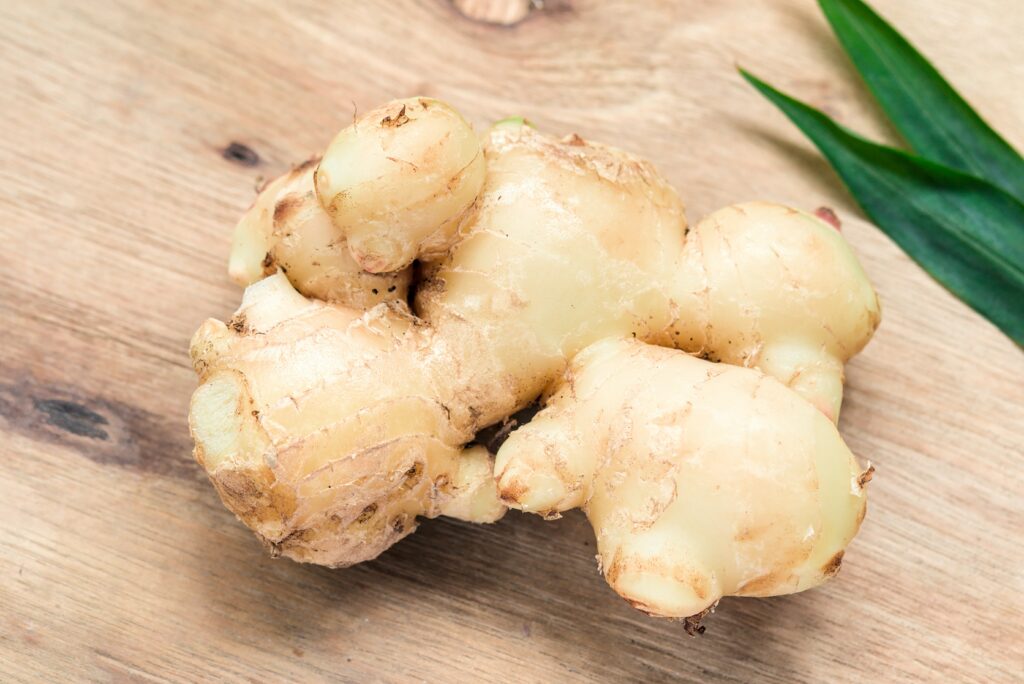
We thank firefighters for risking their lives to save those of others, as well as property. Their work also helps preserve forests, which we treasure.
If not for the work of thousands of brave women and men on those inferno front lines, our skies would be even darker with smoke, the air more redolent of campfire.
Still, we all have struggled through the past few weeks in much of the West, including Colorado’s magnificent Front Range. The air looks as if smeared with margarine. Smoke largely obscures our mountains. Just breathing invites threats. Carbon particulate enters our lungs as we breathe. Smoke can host other goodies too, such as acid gases, sulfur dioxide, aldehydes, nitrogen oxides, polycyclic aromatic hydrocarbons (PAHs), benzene, toluene, styrene, metals and dioxins.
The smoke is inescapable. For many of us, so too is the respiratory discomfort.
Good news, friends. Tea to the rescue!
Six Teas For Respiratory Health
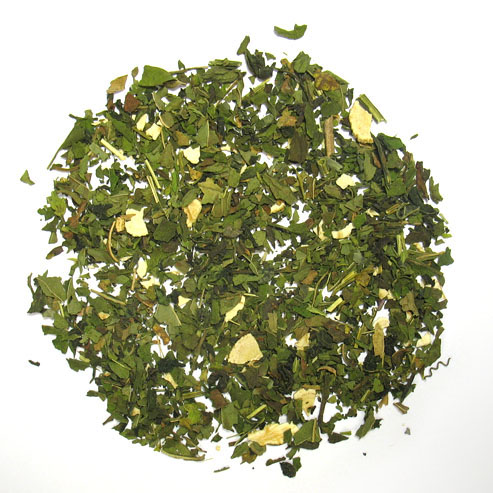
Immortal Tea
Our custom blend combines caffeine-free energy as well as respiratory assistance. It doesn’t offer immortality, alas. But it can at least give our mortal lives a boost.
Immortal Tea rests on a foundation of Jiaogulan, also known as sweet tea vine, fairy herb and southern ginseng. This climbing vine, a member of the Cucurbitaceae family (the family includes things like melons and cucumbers), grows wild across parts of Asia. In particular, it thrives in Southern China’s mountainous areas.
People in China are keen on Jiaogulan leaves, which many believe offer vitality and endurance across the day. In addition, people sip on Jiaogulan tea for relief from coughs, congestion and other respiratory ailments.
The tea also incorporates peppermint, a classic herb for respiratory health, and ginseng. Not long ago, ginseng stood as a fairly exotic root, used mostly in China and Korea for energy. But during the past 20 years, ginseng has entered the mainstream. The plant grows in different parts of Asia, and it also thrives in the United States, mostly in the Appalachian and Ozark regions of the country.
Like Jiaogulan, people use ginseng to treat respiratory problems.
Organic Ginger Refresh
Leveraging ginger’s properties for respiratory relief is common worldwide. Many people, from the United Kingdom to Japan to Ecuador and Egypt, turn to ginger when things begin rattling in the chest.
Organic Ginger Refresh takes advantage of ginger’s soothing properties. But the blend also includes several other ingredients that help the lungs, such as peppermint. A key one? Licorice. People around the world turn to the root to relieve symptoms of respiratory distress.
Between the ginger, the peppermint and the licorice, this delicious tea is a ringer for helping to ease chest discomfort.
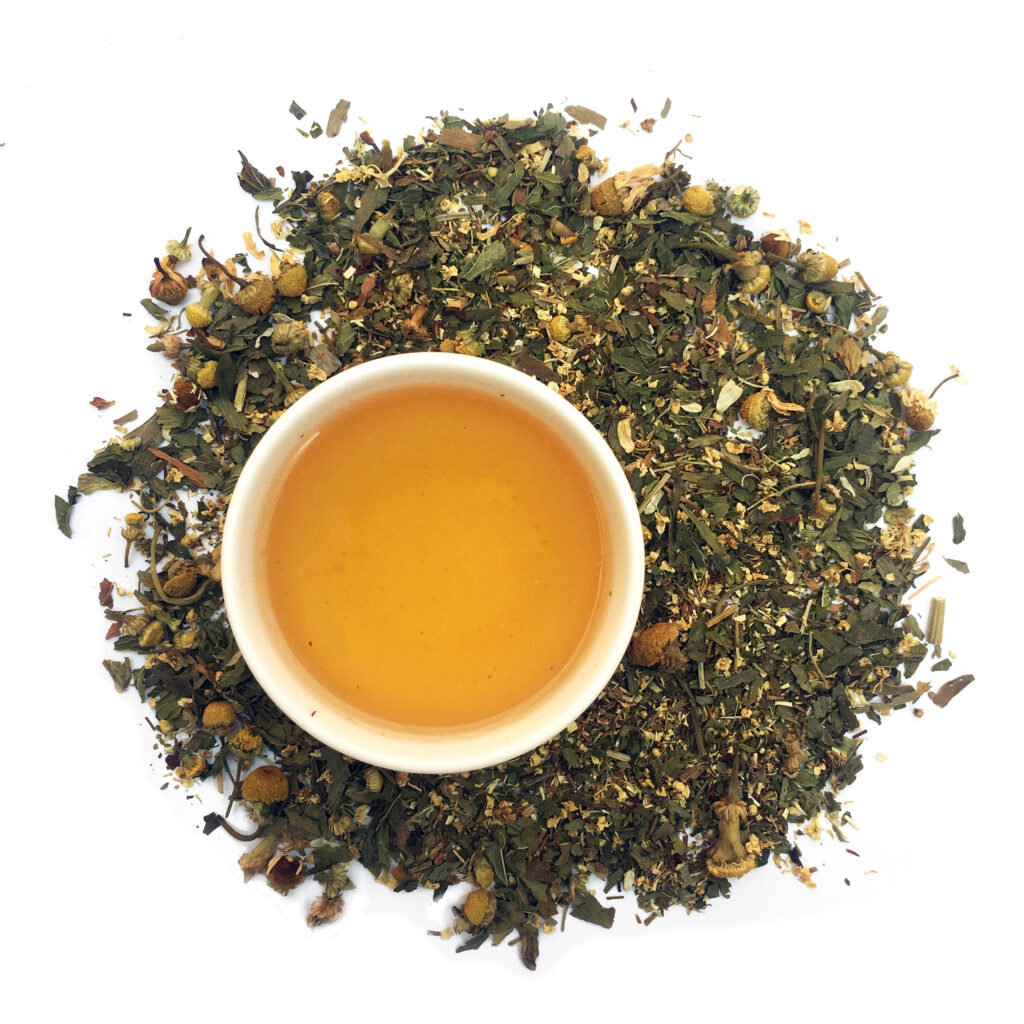
CHA Relax
This bespoke blend is near to our heart. It is one of the fruits of our collaboration with the University of Colorado’s Center for Humanities and the Arts (CHA, which coincidentally means “tea” in Chinese).
The tea’s primary advantage, in addition to beautiful flavor, is its ability to ease people into relaxation. But one of its ingredients, organic elderflower, is renowned for its ability to help manage respiratory ailments.
Head to most drug store and supermarket shelves dedicated to respiratory medicines, and there you likely will encounter herbal treatments involving elderflower and elderberry.
This tea serves sippers especially well before bed. In addition to helping people fall asleep, it works on their chest issues while they dream.
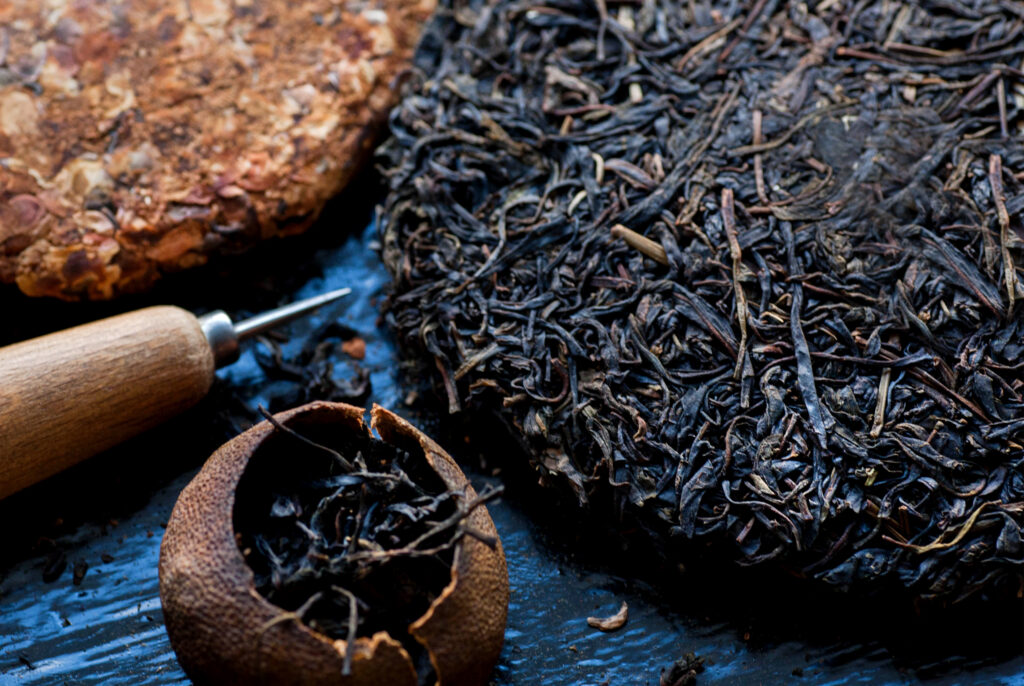
Tangerine Pu-erh Balls
We recommend Tangerine Pu-erh Ball tea to everybody we encounter. Introducing people to new tea experiences dwells at the center of our lives. Few people have tried tea packaged in tangerine rind.
If it didn’t taste awesome, and offer so many health benefits, the tangerine rind novelty would not be enough. But this tea has it all – novelty, flavor and nutrition.
Packed inside the rind is a ball of pu-erh, which is a style of Chinese tea comprised of fermented tea leaves. Artisans in Xin Hui, in China’s Guangdong Province, prepare this lovely and interesting tea treat.
The tea is famous for the health benefits of Sheng Jin (making your mouth feel quenched), Run Fei Zhi Ke (suppressing coughs and nurturing lung performance) and Qu Re (reducing internal heat). We’ll take all three these days! The heat makes us thirsty. The smoke messes with our lungs. And due to the aforementioned heat, anything that reduces it in our bodies is something to celebrate.
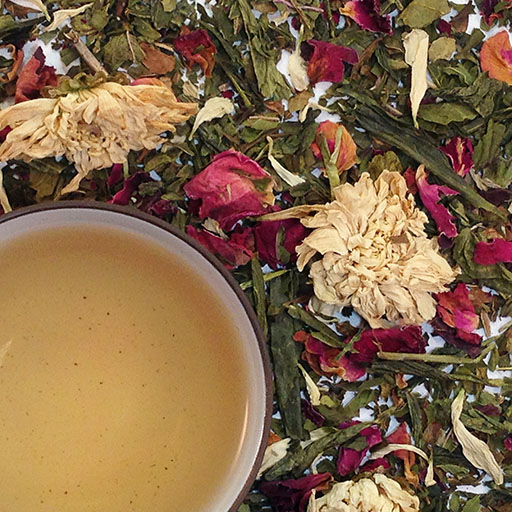
Organic Green Chrysanthemum
Few herbal teas offer as much complexity and delicacy as chrysanthemum. Inhaling and sipping the tea suggests a diversity of flowers and herbs, as well as honey. The flavor is almost haunting, in a good (and not Halloween) way.
In Chinese medicine, practitioners for thousands of years have relied on chrysanthemum explicitly for approaches towards mitigating respiratory ailments. Our Organic Green Chrysanthemum blend uses Chinese chrysanthemum blossoms, and incorporates Japanese sencha tea, peppermint and rose petal in addition to the flower that dominates the exquisite tea.
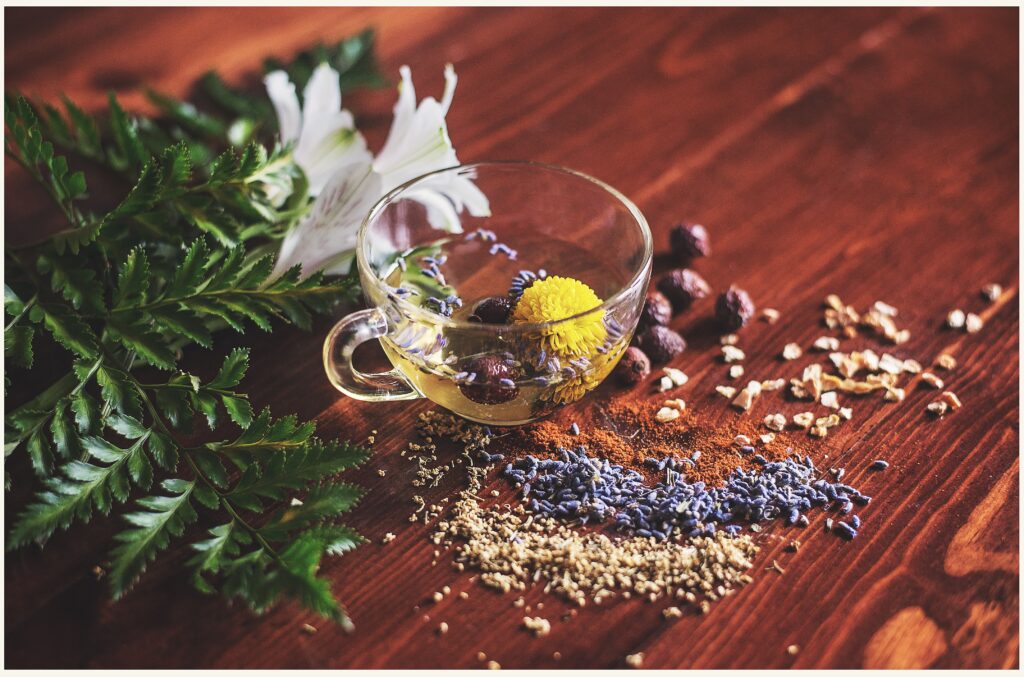
Blend Your Own Tea Station
Customers have long championed our Blend Your Own Tea Station, an area in our shops that offers a broad diversity of tea and herbal ingredients for custom blending.
Due to the maddening pandemic, we temporarily cannot let people mix their own blends by themselves. Instead, they tell us their chosen ingredients and we blend for them.
The opportunity for DIY custom tea blending lives on our website, too. Click here to visit the online Blend Your Own Tea station. Scroll down to “Sort by benefits” or “Sort by names.” If you already know what you want, it’s easy to just pick your ounce of ginkgo leaf or St. Johns Wort or Oat Straw and begin ordering.
However, if you click “Sort by benefits” you encounter a wealth of information, organized by health benefits and conditions. For example, under “Allergy relief” you find that eucalyptus leaf is good for “respiratory support.” Within the “Immunity Support” category, our guide reveals that Echinacea Purpurea (also known as Purple Coneflower, and common in Colorado) strengthens “Bronchial health.”
Let’s all continue to bow down before the mighty firefighters toiling around the clock to protect us from devastating flames and smoke. And until those heroes have contained our beautiful state’s and the West’s many raging blazes this season, let’s also keep on sipping respiratory-supporting teas.


